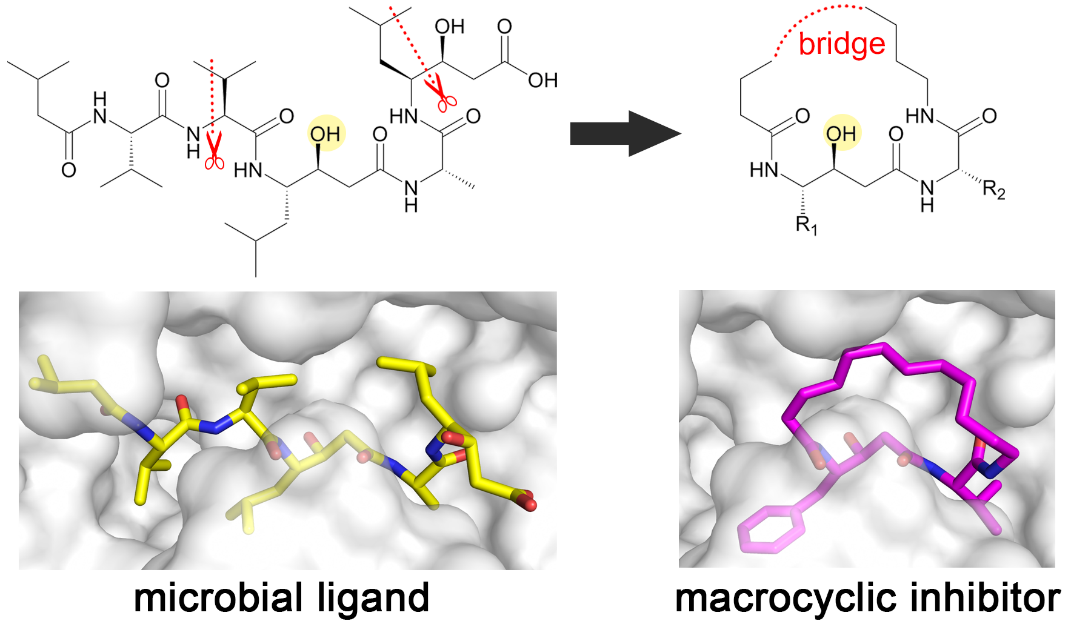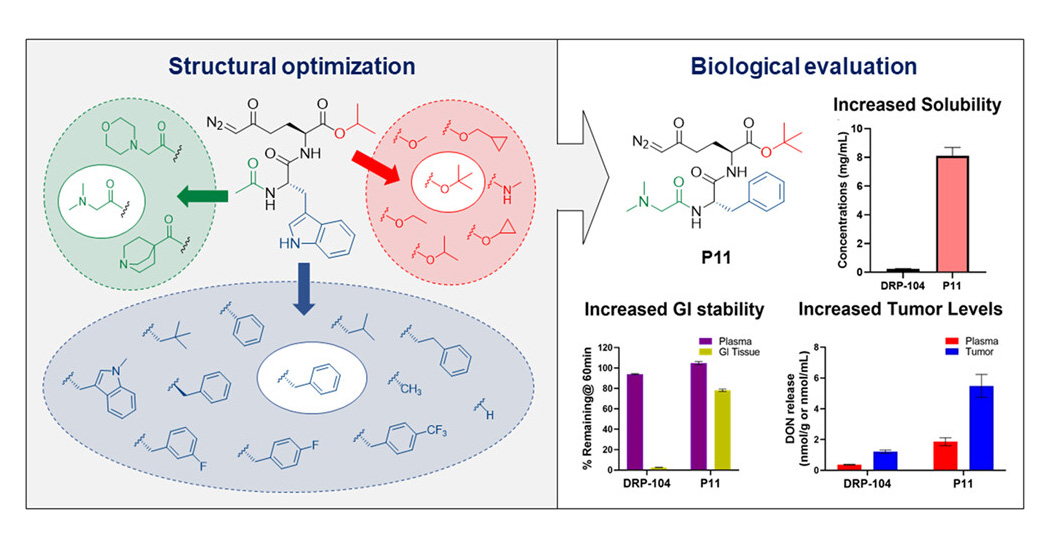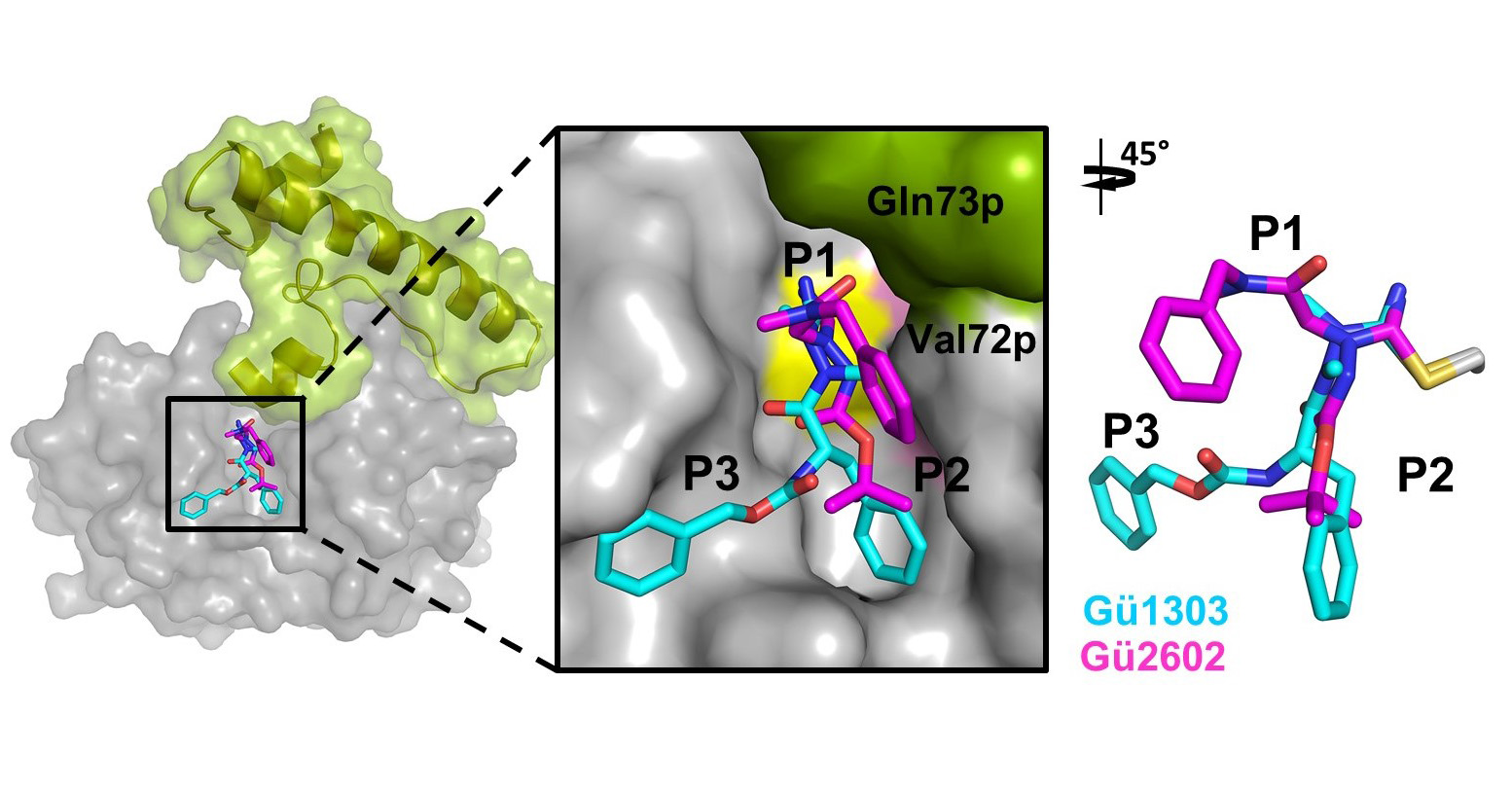
Cathepsin D is an aspartic protease critically involved in several physiological and pathological processes in humans. In breast cancer, it plays an important role in tumor progression and metastasis and serves as a marker for poor prognosis.
The teams of Pavel Majer and Michael Mareš of IOCB Prague have developed biomimetic inhibitors of cathepsin D as a novel tool for regulating this therapeutic target. They investigated the binding mode of pepstatin A, a natural linear peptide from Actinobacteria and regulator of aspartic proteases. When bound in the active site, it adopts a U-shaped conformation that can be effectively locked by an aliphatic bridge to impose conformational constraint through cyclization. Based on this, a functional macrocyclic scaffold with minimized size was designed, and its stabilized conformation was characterized by crystal structures and quantum chemical calculations.
The researchers have shown that the developed inhibitors have favorable drug-like properties compared to natural linear peptides with poor physicochemical and pharmacokinetic parameters. The presented macrocyclics are a powerful template for the rational development of potential chemotherapeutics against pathologies associated with human cathepsin D and related proteases of pathogens.
Original paper: Houštecká, R., Hadzima, M., Fanfrlík, J., Brynda, J., Pallová, L., Hánová, I., Mertlíková-Kaiserová, H., Lepšík M., Horn, M., Smrčina, M., Majer, P. and Mareš, M. (2020). Biomimetic Macrocyclic Inhibitors of Human Cathepsin D: Structure–Activity Relationship and Binding Mode Analysis. Journal of Medicinal Chemistry, 63(4), 1576–1596. https://doi.org/10.1021/acs.jmedchem.9b01351






